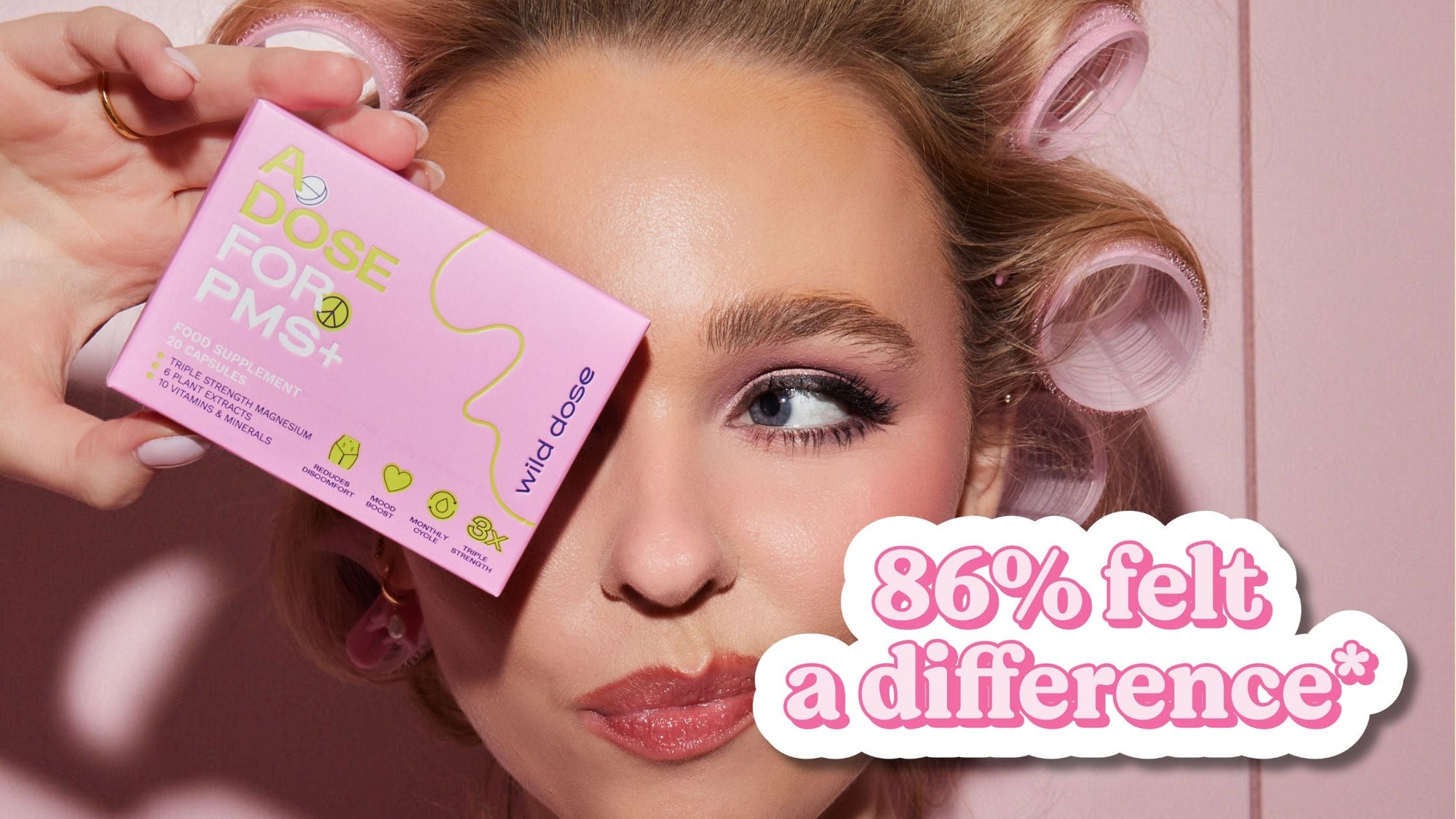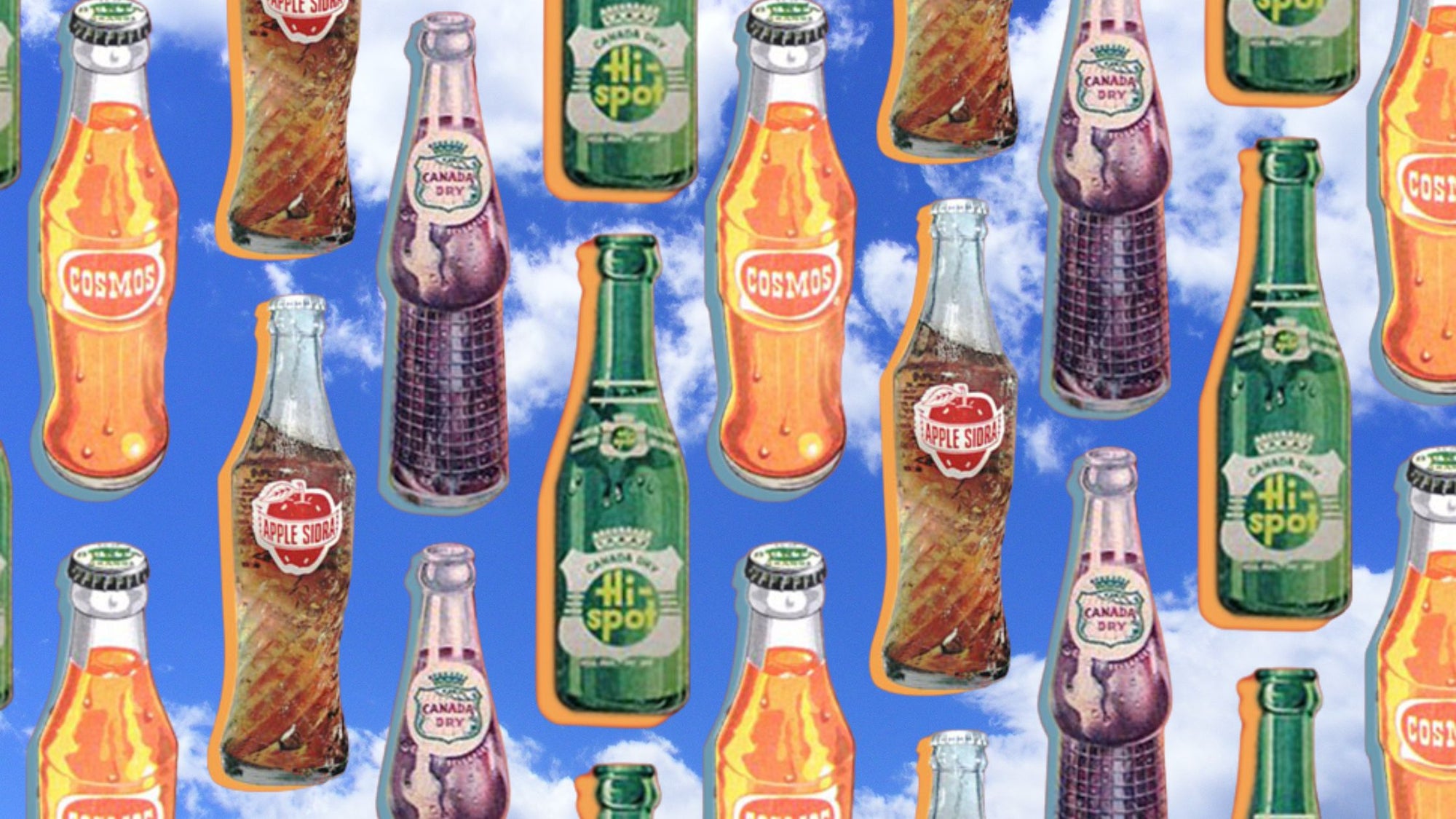If you love an evening glass of wine or a weekend cocktail, you’re not alone. Alcohol is something that many of us enjoy, as it can loosen you up and dampen your inhibitions. However, it comes with its downsides, one of which is digestive discomfort (more specifically, bloating).
Alcoholic drinks can wreak havoc on the digestive tract because they slow down digestion, increasing stomach pains, gas, bloating, water retention, and constipation. These symptoms can be exacerbated if you suffer from irritable bowel syndrome (IBS).
In this article, we are going to cover everything you need to know about IBS and alcohol, including how to relieve the symptoms of all three types of IBS (IBS-C, IBS-D, and IBS-M) if they’ve worsened after a drink or two of alcohol.
What is IBS?
Irritable bowel syndrome is a collection of symptoms affecting the gastrointestinal (digestive) tract. These symptoms include bloating, abdominal pains, and altered bowel habits (diarrhoea, constipation, or both.
According to medical reports and diagnoses, IBS affects up to 20% of the global population. But in reality, it probably affects a much higher percentage of the world’s population than this because a lot of will live with the symptoms of IBS without doing anything about them.
It’s thought that irritable bowel syndrome is caused by changes in the gut microbiome (the billions of microorganisms that live in your colon) or increased inflammation in your lower digestive system. Gut microbiome changes and inflammation can result from stress, a poor diet, and chronic medical conditions, such as autoimmune disorders or hormonal disorders.
How Does Alcohol Affect IBS?
Alcohol isn’t a cause of IBS, but it’s definitely a trigger for many people. Consuming alcohol can lead to several digestive symptoms in the short term and negatively impact your digestive health and function in the long term.
Alcohol worsens IBS symptoms in a few different ways, including the following.
1. It irritates the lining of the gut
Alcohol is a toxin to the body, and when consumed, it can irritate the lining of the gut as your digestive tract tries to break it down. Irritation of the gut lining can increase its sensitivity and cause inflammation, which can further irritate your gut and negatively impact your digestion.
2. It disrupts your microbiome
If you suffer from IBS and are already prone to symptoms, you might find that these symptoms are much worse after you have a few alcoholic beverages because these drinks can disrupt your microbiome. In healthy individuals, there is a very fine balance between the good and bad bacteria in your gut. However, those with IBS might have slightly lower levels of helpful bacteria, and these bacteria become even more depleted if they drink alcohol regularly.
Decreased numbers of beneficial bacteria in the gut can slow down digestion, reduce nutrient absorption, and cause general symptoms like fatigue and nausea.
3. It increases the permeability of the intestinal wall
Alcohol can increase the permeability of the intestinal wall (intestinal hyperpermeability) and cause irritation and inflammation, leading to nasty symptoms, including bloating, nausea, fatigue, and weakness. Intestinal hyperpermeability can also cause potentially toxic waste products to move into the bloodstream from the gut, products that would otherwise pass through the colon and into the toilet!
4. It has a natural laxative effect
Alcohol can stimulate the smooth muscle of the intestines and cause food to move more quickly through your colon and lead to abdominal cramps and diarrhoea. Since both of these symptoms are commonly experienced in those with IBS, alcohol can, therefore, make the condition a lot worse.
How to Ease the Symptoms of IBS
If you love a drink or two (or three (no judgement!)), you will be glad to hear that you can still enjoy alcohol without experiencing the dreaded symptoms of irritable bowel syndrome. There are just a few lifestyle changes that you need to make to ensure your digestive system can cope with alcohol consumption effectively.
Here are our top tips for eliminating bloating, gas, and other IBS symptoms after having alcohol.
Take a natural laxative after you’ve had alcohol
Supplements like our tried and trusted A Dose For Blocked Bellies are the perfect remedies for post-alcohol bloating, gas, and constipation. It contains a blend of six different herbs (fennel seed extract, rhubarb root extract, slippery elm bark, ginger root extract, prune juice extract, and aloe vera extract), magnesium citrate, and rice extract.
Together, this unique blend of ingredients relaxes and supports your digestive system when it’s struggling after a few glasses of alcohol. But how do they do this exactly?
- Fennel seed can strengthen the gut lining
- Rhubarb root contains fibre and sennosides (compounds that have natural laxative effects)
- Slippery elm bark soothes the digestive tract, reduces inflammation, and increases mucus production
- Ginger root contains gingerol, which promotes bowel movements and relieves constipation. It also has anti-inflammatory and antiemetic effects, reducing nausea and digestive discomfort.
- Prune juice is packed full of fibre, which promotes better digestive health and regularity, and fuels the gut microbiome
- Aloe vera can soothe the digestive tract and aid digestive enzymes in metabolising ingested foods
- Magnesium citrate increases water absorption in the stool, softening it and relieving constipation
- Rice extract contains a type of starch that can soothe the gastrointestinal tract and promote healthier digestive processes
Just a capsule or two of A Dose For Blocked Bellies when you’re feeling sluggish after alcohol is all you need for immediate relief! After a week of using A Dose For Blocked Bellies regularly, you will experience better bowel regularity overall.
Avoid foods that are hard to digest
Hard-to-digest foods are those that are fibrous and tough, such as cauliflower, broccoli, cabbage, onions, beans, and dried fruit. Eating these foods can put a strain on your digestive system and increase the chance of common IBS symptoms like bloating, gas, constipation, and abdominal pain.
Avoiding these foods and choosing foods that contain less fibre could promote better digestive health if you have irritable bowel syndrome. If you’re unsure which foods are best for you based on your unique symptoms and overall health, speak to a registered dietitian to get dietary advice that is more personalised to you and your needs.
Eliminate foods that aggravate your IBS
Alongside high-fibre foods, spicy, fatty, and gluten-containing foods are also known to trigger IBS symptoms. If you find that any of these groups of food irritate your stomach or bowels, consider eliminating them from your diet or reducing your consumption of them at the very least. Similarly, caffeine, alcohol, and fizzy drinks are common culprits of bloating, gas, and general digestive discomfort, and you might want to avoid them as someone with IBS.
Only you will know what foods trigger your symptoms to worsen the most. If you’re not sure what foods actually worsen your IBS, keep a food diary for a week or two and note down the exact food and drinks you’re consuming alongside any symptoms that you experience afterwards. This allows you to identify your unique trigger foods and drinks so you can start to remove them from your diet or reduce your intake of them.
Removing full food groups from your diet can increase the risk of nutrient deficiencies or unintentional weight loss. Do some online research or speak to a registered dietitian to learn about which foods to add into your diet in place of the foods that you’re removing to avoid negative health consequences.
Use heat therapy
Take advantage of the soothing effects of heat! Fill a hot water bottle or microwave a heat pad to place on your lower abdomen. Warmth can relax the muscle tissue and reduce cramps, pains, and general discomfort.
Heat therapy is a simple, accessible, and natural remedy for tackling IBS symptoms. Make sure you have a water bottle or heat pad to hand if you have IBS so you can enjoy immediate relief as and when you need it.
Engage in low-intensity exercise
Whether it’s yoga or walking, engaging in low-intensity exercise will encourage food to move through the digestive tract, which can help prevent constipation. It may also provide a distraction from your symptoms and enable you to clear your mind and feel somewhat rejuvenated.
It’s probably best to avoid high-intensity exercise when you’re dealing with an IBS flare-up, as doing so could aggravate your symptoms and make you feel even worse.
Gently massage your abdomen
Gentle massage can do wonders for your digestion. It can soothe abdominal pains and encourage food to move more easily through the lower digestive tract. If you have IBS and are prone to bloating, gas, and constipation, abdominal massage will be a great addition to your routine.
Move your hand gently around your abdomen in a clockwise direction for a few minutes, and your symptoms should slowly start to ease. To further help reduce your symptoms and soothe any cramps, apply a hot water bottle to your lower abdomen.
Eat little and often
Eating large volumes of food at once can overwhelm your digestive tract if you have IBS, leading to bloating and abdominal pains whilst your body tries to metabolise all of this food as quickly as possible. Increasing the frequency of your meals whilst reducing the volume of food you’re eating at each meal will help your digestive tract to cope better with breaking down ingested foods.
Eating small and often can allow the digestive tract enough time to metabolise food and absorb the constituent nutrients before you eat again. In turn, you can promote better digestive health and function, and avoid exacerbating your IBS symptoms.
Of course, we understand that this isn’t practical for some people. If you work long shifts and only get a couple of breaks during them, you might struggle to eat frequently. However, try to plan ahead so you can take snacks that are quick and easy to eat and scoff them in between meetings if you’re an office worker or when there’s a quiet period if you work in a customer-facing job.
Quick and easy snacks include breakfast bars, granola bars, rice cakes, home-made baked goods, dark chocolate, and trail mix. Snacking on probiotic-rich foods like sauerkraut, kefir, and tempeh, are also great gut-healthy options for IBS sufferers.
If you’re snacking more often than usual to manage your IBS more effectively, remember that you will need to reduce the size of your main meals to ensure you don’t overconsume calories and gain weight unintentionally.
Drink plenty of water
Staying hydrated enables you to debloat and is key to minimising IBS symptoms. Dehydration can exacerbate digestive issues, particularly water retention and constipation, as it causes the body to reabsorb more water from the stool in an attempt to rehydrate itself.
Everybody needs different amounts of water, depending on their daily activities and how warm their surroundings are. However, generally, you should aim to drink enough water that you don’t get thirsty. Taking regular sips of water throughout the day (maybe every half an hour or so) will prevent thirst and ensure you stay hydrated.
Lower your stress
Stress can trigger nasty digestive symptoms in anybody, but it’s something to pay particular attention to if you have irritable bowel syndrome, as stress could affect you much more dramatically in the latter case.
Both physical and psychological stress can increase cortisol, a hormone that diverts blood away from the gastrointestinal tract. With slower blood flow, food will move more slowly through the digestive tract, and nutrients will be absorbed into the bloodstream at a slower rate. As a result, you are more likely to feel bloated and gassy.
Finding ways to reduce your stress can help relieve IBS symptoms by lowering cortisol and supporting a healthy blood flow to the digestive tract. Whilst stress reduction can be difficult in today’s day and age, try to find small but effective ways to reduce your workload and find more time to relax. This could be all you need to alleviate all of your digestive issues!









